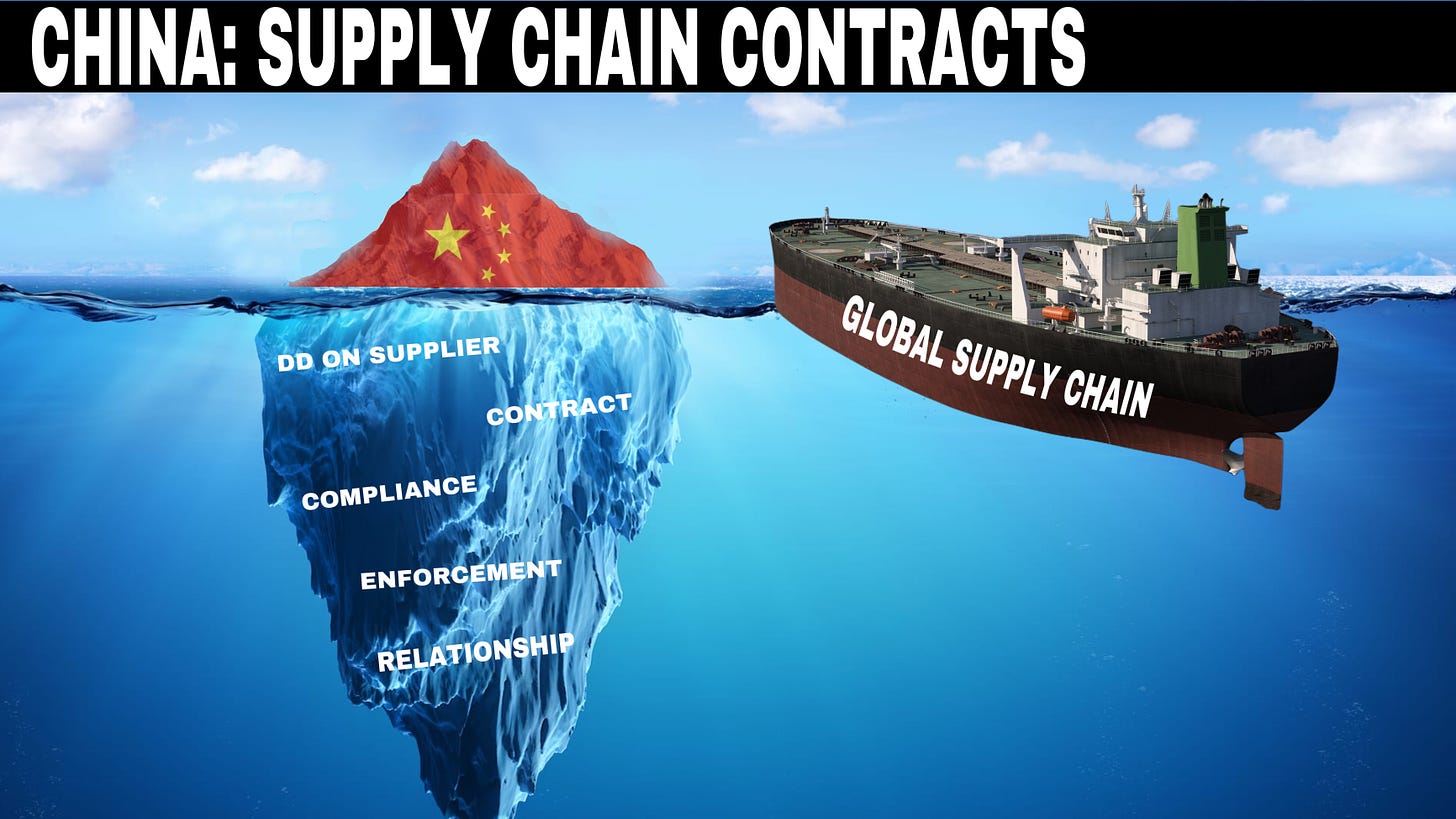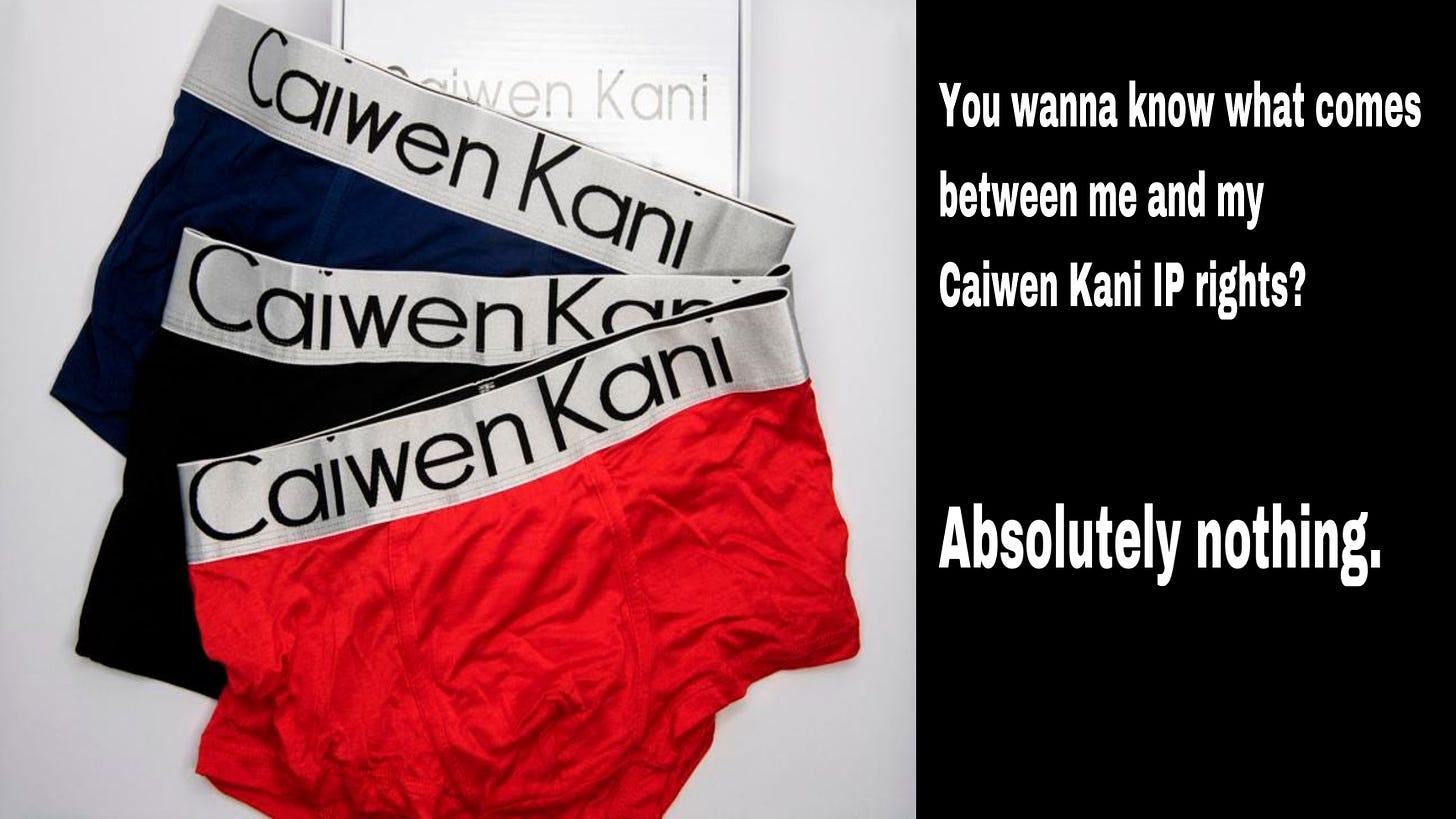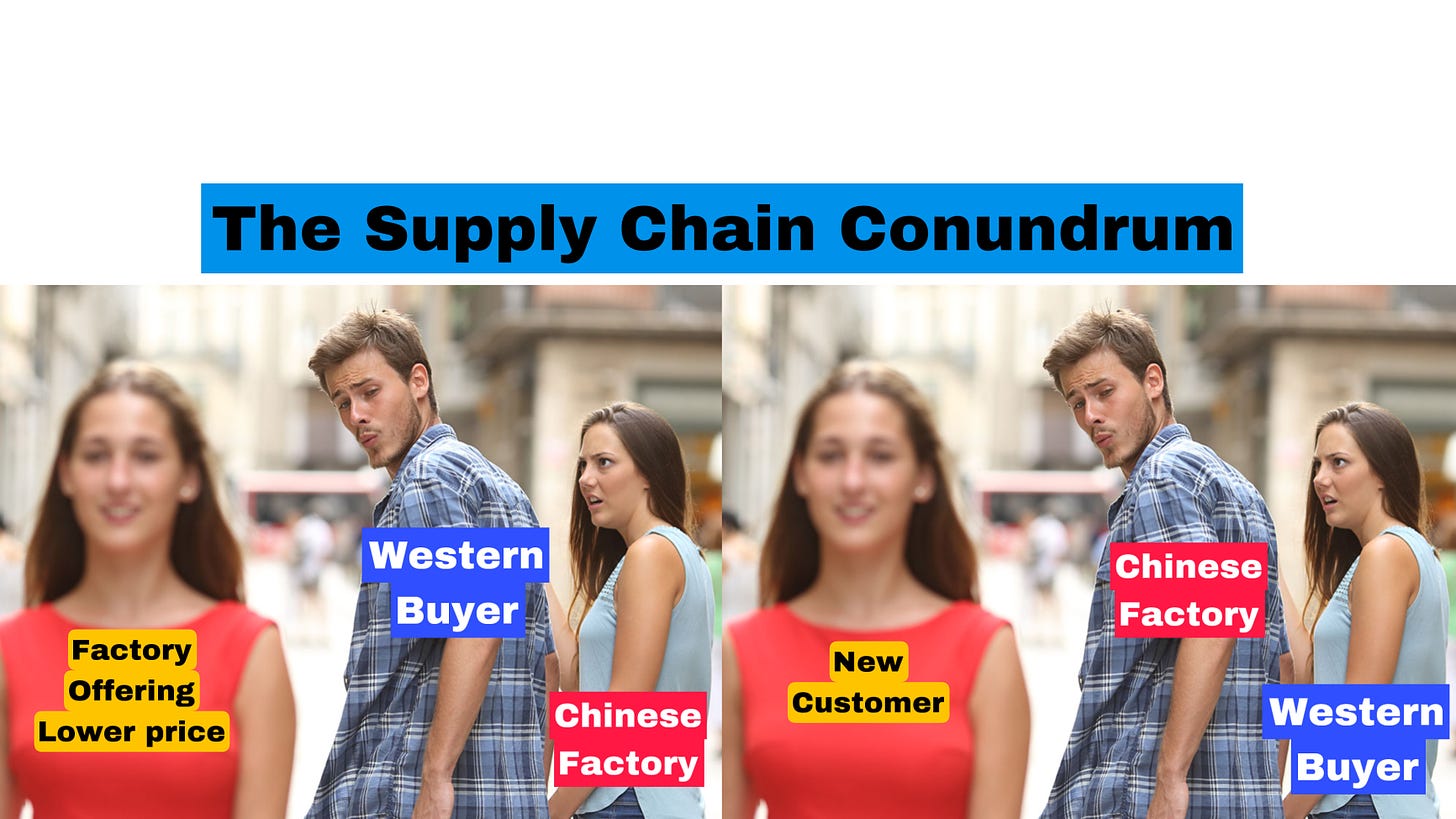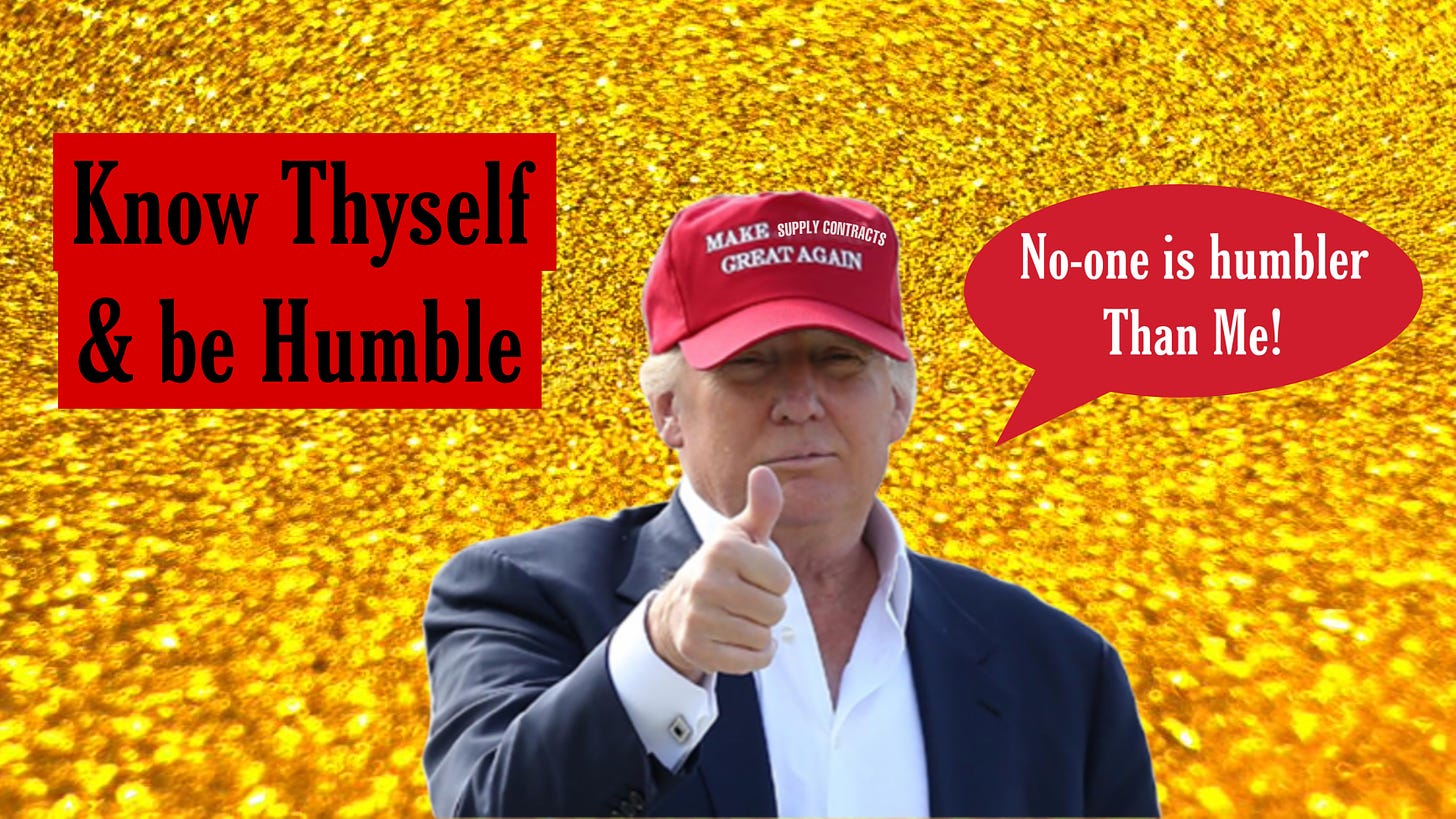Please note all content is personal opinion only. This does not reflect the opinion of my employer – so there.
Coming Webinar - Last Friday our webinar “Regulations on Standard Contract for Cross-border Transmission of Personal Information” – was as rapturously received as the title would hint. Due to overwhelming demand, we are doing a new webinar this Friday again on the newly published “Measures on Security Assessment of Data Cross-Border Transmission” - these regulations will have a wider impact on data handling so be cool and join the other cool data kids and register for free at:
Coming Live Event in London – Later today we are having our live event at 6pm 12 July offices to talk about my recent experiences in Shanghai’s lockdown – free food and drinks – are you someone who only makes plans at the last minute? Please register by emailing Megan Gu at megan.gu@eu.kwm.com and we will see if we can fit you in.
As Shanghai may face a new lockdown – several colleagues are locked down due to a close contact to a close contact who went to the karaoke bar – there is continued interest in what impact this will have on global supply chains. As discussed in the last issue I do not think there will be a wholesale move away from China – it is just too big and too entrenched – but there may be some production moving out and undoubtedly there will be supply chain challenges.
Although China is an foreign direct investment magnet – it has a much bigger role as the world’s factory. So many international companies rely on China manufacturing to keep their operations going. For this reason, it has always been a mystery why people spend USD 100,000 to set up a basic WFOE and have hundreds of queries but then enter multi-million-dollar supply contracts which essentially bet their company’s future without any expert input. As no client has ever listened to my pleas for action on supply chain issues, I have put them into an easy to remember list of 10 commandments (easier than the biblical list):
Commandment 1: Protect Your IP
Before negotiating with Chinese suppliers, it is crucial that you shore up your IP protection to the maximum extent possible. Some Western companies still have the view that as protecting your IP in China is challenging the best approach is to do absolutely nothing and make it impossible to do anything. China IP protection is not perfect but is rapidly improving. I know this as the fastest growing practice in our law firm is IP litigation and most cases are Chinese companies suing other Chinese companies. They would not be doing this just to make a point.
So what should Western companies do?
• Register trademarks (including Chinese version) early and often – it is very inexpensive
• Register your patents in China (relatively inexpensive)
• Register your IP with China customs - China is only country whose Customs officials check goods going in both directions (in and out). Registration of your IP with Customs is an efficient and cost effective way to protect your IP in relation to imported/exported products
• IP enforcement can be difficult BUT there is no excuse for taking NO action and making a difficult situation an impossible one
Commandment 2: Thou Shalt Have Good Relations with your Chinese Supplier
The best results tend to come from long term contractual relationships that go beyond one shipment. If you are only making a one-off order then the best advice is to 1) see if company exists (yep still happens that people contract with bogus companies); 2) make sure payment is by letter of credit to the extent possible; and 3) have someone check on the supplier during the process and crucially check the products before shipping. As COVID has made such QA trips almost impossible it is worthwhile engaging a consultant who has boots on the ground to help you.
However, today we are primarily looking at consider long term supply arrangements. The most important thing to get right is picking the right supplier and developing your relationship with them. It is more important to have a good partner than a good contract (but you can still have a good contract too).
First and foremost - conduct some initial due diligence on your Chinese supplier:
- Do they exist?
- Are they still validly operating?
- Who is the owner?
- How big are they?
- Are they compliant with employment and environmental obligations?
- Experience of other customers
A simple due diligence check (i.e. less than USD 1000) will uncover/confirm most issues. Over the years we have found 1) suppliers bankrupt and deregistered while the client continued to trade); 2) supplier that used one company for collecting funds, one to hold the assets and one to enter into contracts so as to have a legal shield from lawsuits; 3) suppliers that would take payment but not make delivery etc.
Commandment 3: Thy Supply Relationship Shalt Make Sense
The structure of the relationship needs to make sense if it is to be sustainable.
If you require the Chinese supplier to invest millions in a purpose-built production line solely for your products then you cannot have “at will termination” and you will need to provide binding orders so he gets a return on investment.
Be wary of “tough guy clauses” – they may sound good but are in most cases notoriously difficult to enforce and may give you false comfort. If the supplier is sitting on a major capital investment and has hired a bunch of employees, it is naïve to think he will not continue to manufacture your products … just not for you.
Also, price is of course important, but it is not the only factor. You want to make sure the Chinese supplier can make some margin and is stable.
Think practically. If you are supplying the moulds, tooling or equipment then make sure the contract and assets themselves (i.e. markings on equipment) confirm your ownership. Make sure your IP protection is up to date. If you can safeguard your interests by keeping an integral part out of the supplier’s hands or by dividing up the manufacturing so that no single supplier has a full understanding of the product then this is all the better.
Many companies just rely upon one sided template contracts and add in more one-sided provisions comfortable in the knowledge that in many cases if the supplier is desperate enough the only part of the contract he reads is the price. But this is not healthy and even in your own interest it is of limited value to blame the lawyer when your fancy provisions in the contract cannot be enforced. When drafting the contract take the time to think strategically – about your product, about the supplier, the relative leverage and how to safeguard the IP.
Commandment 4: Know Thyself & Be Humble
When negotiating with the Chinese partner it is important to know yourself and also be humble. The Chinese partners are experts of flattery and many Western businesspeople not feeling appreciated at work or home are highly receptive to this. So when I am in such a situation I always close my eyes and think “What would the Donald do in this situation?”. I then get up and proceed to insult everyone in the room which does keep the other side off balance.
However, your humility should be kept in check – much like the Donald … humility can be overdone. One I saw a Western businessperson self-flagellating (I double checked the definition) to a far too extreme extent and commented:
“Stop being so humble… you’re not that great”.
Accordingly, when considering your sourcing operations, it is good to periodically engage in some Trumpian like self-introspection and ask questions such as:
- Do we have the resources to take care of a sourcing project by ourselves? Or especially with COVID is it better to outsource checks, quality assurance and compliance to a party which is on the ground in China.
- Is it reasonable to find a supplier on the internet? Or from a Chinese student I recently met whose father just happens to make the exact product I am searching for.
- Does my product face particular problems or issues?
- If I have a procurement team in China – can I trust them?
- Can my supporters take the Capitol?
- Is it reasonable to allow a Chinese company to invest in expensive production lines and then expect them to immediately stop production upon my say so?
- Can I take strategic decisions (i.e. split up the procurement process, not bundle all suppliers in one region) that strengthen my overall control or reduce risk.
Commandment 5: Know Thy Importance and Leverage
In a similar vein it is important to keep an eye on leverage in the supplier-customer relationship. These relationships are not static. Initially the supplier seems to be as eager as a Labrador puppy but over time as they become more crucial to your supply chain and more difficult to dislodge – that puppy can grow into something of a Cerberus. Accordingly, important to manage the relationship as you go along.
Over the years I have noticed that Chinese suppliers can often be very loyal to their long-term customers. If there is a problem, they will often bend over backwards to solve it. Their reflex is to respond to the relationship rather than the contract. Often when a client has a new supplier, he will perform well for the first contract … next order bit less enthusiastic … third order – delays and less compliant. At some point in time the supplier seems to lose interest. It is important to guard against this by ensuring you have a realistic understanding of your actual position. Are you a small customer with bespoke requirements? Then you will be considered less of a welcome challenge and more of a low margin pain. At the other extreme is your global supply chain totally dependent upon one major Chinese supplier? If yes, then you may find the customer is not always king. In a world of pandemics and geopolitics it may be prudent to avoid total reliance on one supplier or even on one narrow region. Naturally this will be more difficult in practice than it sounds in theory – accordingly supply chain management is not a one off event but more like a nurtured garden.
If you find yourself saying any of the below then you may be in trouble:
“I have him right where I want him”
“I am their major customer - what can they do?”
“They have excellent guanxi – I am sure they can iron the problem out”
NEXT ISSUE: CHINA: THE 10 COMMANDMENTS OF SUPPLY CHAIN CONTRACTS (PART II – THE THRILLING CONCLUSION WITH COMMANDMENTS 6 THRU 10)
In the next issue we will conclude the commandments in respect of supply chain contracts. As you would expect we have kept back the most exciting ones including making graven images, false witness and adultery!
See you next week,










